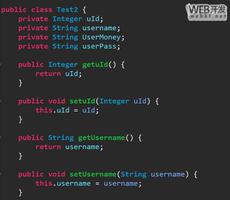C语言中变量声明及变量规则讲解
让我们先了解一下,什么是变量。
多变的
它是可用于存储数据值的内存位置的名称。
变量在执行期间的不同时间可能会采用不同的值。
程序员可以通过有意义的方式选择变量名,以反映其在程序中的功能(或)性质。
例如,sum、avg、total 等。
命名变量的规则
命名变量的规则解释如下 -
它们必须以字母开头。
ANSI 标准中变量的最大长度为 31 个字符。但是,前八个字符对许多编译器都很重要。
大小写字符不同。例如:total、total、total 是 3 个不同的变量。
变量不是关键字。
不允许使用空格。
变量声明
下面解释了有关变量声明的语法和示例 -
语法
下面给出的是变量声明的语法 -
Datatype v1,v2,… vn;
其中,v1、v2、...vn 是变量的名称。
例如,
int sum;float a,b;
变量可以通过两种方式声明 -
本地声明- “本地声明”在主块内声明一个变量,其值在该块内可用。
全局声明- “全局声明”在主块之外声明一个变量,其值在整个程序中可用。
示例
以下是 C 语言中局部和全局变量声明的 C 程序 -
int a, b; /* global declaration*/main ( ){
int c; /* local declaration*/
- - -
}
示例
下面给出的是一个 C 程序,用于查找物品的售价 (SP) 和成本价 (CP) -
#include<stdio.h>输出结果int main(){
float CostPrice, SellingPrice, Amount; //变量声明
//costprice & sellingprice are variables and
//float 是一种数据类型
printf("\n product cost price: ");
scanf("%f", &CostPrice);
printf("\n product selling price : ");
scanf("%f", &SellingPrice);
if (SellingPrice > CostPrice){
Amount = SellingPrice - CostPrice;
printf("\n Profit Amount = %.4f", Amount);
}
else if(CostPrice > SellingPrice){
Amount = CostPrice - SellingPrice;
printf("\n Loss Amount = %.4f", Amount);
}
else
printf("\n No Profit No Loss!");
return 0;
}
输出如下 -
product cost price : 240product selling price : 280
Profit Amount = 40.0000
以上是 C语言中变量声明及变量规则讲解 的全部内容, 来源链接: utcz.com/z/322820.html




